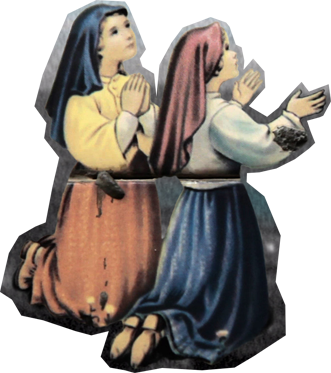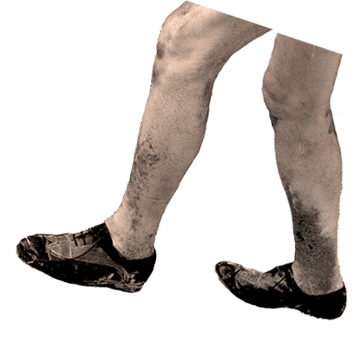-
ALEPH
Director: Radivojevic Iva
Producer: Murat Selin
Production company: Parabola Films
Canada, Croatia, France, 90 min, HD, Creative, Experimental, Personal View, Philosophy, Politics
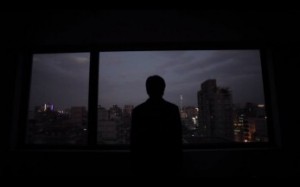 Inspired by a short story by Jorge Luis Borges of the same name, the documentary film Aleph is a meditation on infinity, possibility and interconnectedness as it develops as a travelogue around the world. Aleph refers to a point in space that contains all other spaces at once. Anyone who gazes into it can see everything in the universe from every angle simultaneously, without distortion, overlapping or confusion. The film Aleph compiles a series of short stories weaved together by common themes, including dreams, philosophy, memory and religion (in the broader sense of the word). Featured in each of the vignettes is a character or “social actor” from a different part of the world. A phrase or a concept from one person’s portrait is extracted and used as a point of conversation for the next character, to be reinterpreted, redirected into a new conversation and contextualized with their own life. The duration of each story is just long enough for each character to speak their mind and direct us into the next location. The destination of the new location is always dictated by the preceding character in the form of a question, driven either by a dream, a desire or a longing for a place. While subtly commenting on the socio-economic and political nuances of each place, the film’s focus is on the human spirit, the sense of wonder and the multitude of possibilities all illustrated through a universal conversation.
Inspired by a short story by Jorge Luis Borges of the same name, the documentary film Aleph is a meditation on infinity, possibility and interconnectedness as it develops as a travelogue around the world. Aleph refers to a point in space that contains all other spaces at once. Anyone who gazes into it can see everything in the universe from every angle simultaneously, without distortion, overlapping or confusion. The film Aleph compiles a series of short stories weaved together by common themes, including dreams, philosophy, memory and religion (in the broader sense of the word). Featured in each of the vignettes is a character or “social actor” from a different part of the world. A phrase or a concept from one person’s portrait is extracted and used as a point of conversation for the next character, to be reinterpreted, redirected into a new conversation and contextualized with their own life. The duration of each story is just long enough for each character to speak their mind and direct us into the next location. The destination of the new location is always dictated by the preceding character in the form of a question, driven either by a dream, a desire or a longing for a place. While subtly commenting on the socio-economic and political nuances of each place, the film’s focus is on the human spirit, the sense of wonder and the multitude of possibilities all illustrated through a universal conversation.
***
-
A U D I B L E
Directors; Jurčić Ana & Batinić Marta
Production company: Filmaktiv
Croatia, Experimental documentary film, REFINERI
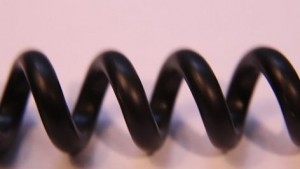 Considering all forms of sounds that we live next to – urban noise, music, voices, new technologies and other sources of sound – this film experiments with sometimes excluded dimensions of noise, silence and sound as music, as well as the act of active listening in a pseudo-scientific and playful manner. Do sounds exist without a listener or are they just events that materialize through time? What makes a sound musically useful? Sound is a wave, a motion and a vibration. The motifs of transverse and longitudinal waves as graphic elements dictate the rhythm and structure of Audible: compression-expansion-compressing again and releasing. Waveforms of different amplitudes appear, sketching whatever we see: sinewaves as water or squarewaves as urban landscapes. Revealing the staged “laboratory” of the process, the presence of the microphone is the always present reality-check: while amplifying body sounds, attempting to create synesthetic experiences or hearing the unheard. Exploring the capability of visualizing frequencies and recording images those sounds are causing in an individual’s mind in an overall attempt to create a cinematic oscilloscope.
Considering all forms of sounds that we live next to – urban noise, music, voices, new technologies and other sources of sound – this film experiments with sometimes excluded dimensions of noise, silence and sound as music, as well as the act of active listening in a pseudo-scientific and playful manner. Do sounds exist without a listener or are they just events that materialize through time? What makes a sound musically useful? Sound is a wave, a motion and a vibration. The motifs of transverse and longitudinal waves as graphic elements dictate the rhythm and structure of Audible: compression-expansion-compressing again and releasing. Waveforms of different amplitudes appear, sketching whatever we see: sinewaves as water or squarewaves as urban landscapes. Revealing the staged “laboratory” of the process, the presence of the microphone is the always present reality-check: while amplifying body sounds, attempting to create synesthetic experiences or hearing the unheard. Exploring the capability of visualizing frequencies and recording images those sounds are causing in an individual’s mind in an overall attempt to create a cinematic oscilloscope.
***
-
CIRCUS RWANDA
Director: Varga Michal
Producer: Novák Marek
Production company: Xova Film
Cirkus Rwanda , Czech Republic, 70 min, DCP, HD, Arts and Culture, Portrait, Social Issues
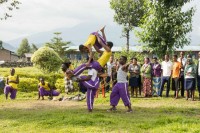 Eliseé used to live orphaned on a street, until he found about new circus. He decided to become an acrobat and help the other orphans in Rwanda to find sense in their lives. Eliseé now runs Future Vision Acrobats formed by disadvantaged children. He uses all his skills to get food, shelter and education for the children. They all dream about a better show with a trampoline – a wonderful acrobatic tool far from the reach of Rwandese children. Rosťa Novak leads a famous circus in Czech Rep. They will join FVA in Rwanda and help them develop a new show. Contemporary circus remains unknown in the country. To Eliseé, a the cooperation means a promise of better future for the children. The unique performance means more money earned from shows. La Putyka members are all Africa first timers so it’s quite hard for them to fit in but they slowly get to know Rwanda with all its joy and pain. The show gets brighter contours as La Putyka and FVA are getting to know each other, but Rosťa finds out it’s impossible to develop the show in just three weeks in Rwanda. Rosťa invites FVA for a joint workshop to Czech Republic. Eliseé’s group can finally use a real circus trampoline. Both ensembles work hard on the show in Prague but now it is up to FVA to overcome the difficulties, brought by the cultural differences. The new show is presented in Czech villages, where most of the people have seen an African just on the TV.
Eliseé used to live orphaned on a street, until he found about new circus. He decided to become an acrobat and help the other orphans in Rwanda to find sense in their lives. Eliseé now runs Future Vision Acrobats formed by disadvantaged children. He uses all his skills to get food, shelter and education for the children. They all dream about a better show with a trampoline – a wonderful acrobatic tool far from the reach of Rwandese children. Rosťa Novak leads a famous circus in Czech Rep. They will join FVA in Rwanda and help them develop a new show. Contemporary circus remains unknown in the country. To Eliseé, a the cooperation means a promise of better future for the children. The unique performance means more money earned from shows. La Putyka members are all Africa first timers so it’s quite hard for them to fit in but they slowly get to know Rwanda with all its joy and pain. The show gets brighter contours as La Putyka and FVA are getting to know each other, but Rosťa finds out it’s impossible to develop the show in just three weeks in Rwanda. Rosťa invites FVA for a joint workshop to Czech Republic. Eliseé’s group can finally use a real circus trampoline. Both ensembles work hard on the show in Prague but now it is up to FVA to overcome the difficulties, brought by the cultural differences. The new show is presented in Czech villages, where most of the people have seen an African just on the TV.
***
-
DIDA, GRANNY AND US
Director: Ilić Nikola, Schwingruber Ilić Corina
Producer: Sonder Franziska
Production company: Joint Venture Film Production
Dida, Baba i mi , Switzerland, 80 min, HD, Personal View, Portrait
 While we in Switzerland recruit nursing specialists from the east, there are hardly any external nursing possibilities in other countries for sick and aged people. This means that they are usually dependent upon family members. However, what happens when their family emigrated abroad years ago? We, Nikola and Corina, find ourselves in this situation: the aged grandmother and the slightly mentally handicapped mother of Nikola live in Belgrade and increasingly require, besides financial, personal assistance from Switzerland. This film provides another angle on migration from the perspective of those left behind, and of those émigrés who are once again needed in their home country. What additional problems must we face when family members in our home country grow sick or old? What exactly happens when it’s no longer holidays but nursing stays that are planned, and what influence does this change have on the lives of all those involved?
While we in Switzerland recruit nursing specialists from the east, there are hardly any external nursing possibilities in other countries for sick and aged people. This means that they are usually dependent upon family members. However, what happens when their family emigrated abroad years ago? We, Nikola and Corina, find ourselves in this situation: the aged grandmother and the slightly mentally handicapped mother of Nikola live in Belgrade and increasingly require, besides financial, personal assistance from Switzerland. This film provides another angle on migration from the perspective of those left behind, and of those émigrés who are once again needed in their home country. What additional problems must we face when family members in our home country grow sick or old? What exactly happens when it’s no longer holidays but nursing stays that are planned, and what influence does this change have on the lives of all those involved?
***
-
JUMPERS
Director: Seliškar Petra
Producer: Ferro Brand
Production company: Petra Pan Film Production
Skakalci , Slovenia, 80 min, DCP, HD, Arts and Culture, Creative, History, Politics
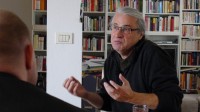 In a country of 2 million people strongly connected to it’s incredible nature there is something weird. Every country has something to look up to , but Slovenians have something to look down from – Planica the biggest hill for ski jumping in the world. Every world championship in ski-jumps is almost religiously followed by thousands of Slovenians. Planica joins Slovenians together by one single idea – the power of young jumpers, that reflects on spiritual power of that nation. Every Slovenian wishes to be a part of a strong nation. But in reality if someone from elsewhere would look at this same situation, he could easily see the drunken masses under the hill dressed in Slovenian national costumes, eating sausages and drinking endless liters of alcohol. But if you ask Slovenians under that hill what they are doing, they would describe this event as the peak of Slovenian culture. So the question is what is culture to Slovenian people. Culture is the most important constitutive element of Slovenian nation, mostly based on language and literature. To Slovenians culture is a sum of highest spiritual efforts. This nation never had territorial appetites, never had strong economy, nor royalty, the only thing that always defined Slovenians was culture. Slovenians are possessed with culture. They even have culture of driving (how to drive properly) , culture of dialoge (based on constructive conversation) , culture of dressing ( to be aware of fashion trends), culture of communication…
In a country of 2 million people strongly connected to it’s incredible nature there is something weird. Every country has something to look up to , but Slovenians have something to look down from – Planica the biggest hill for ski jumping in the world. Every world championship in ski-jumps is almost religiously followed by thousands of Slovenians. Planica joins Slovenians together by one single idea – the power of young jumpers, that reflects on spiritual power of that nation. Every Slovenian wishes to be a part of a strong nation. But in reality if someone from elsewhere would look at this same situation, he could easily see the drunken masses under the hill dressed in Slovenian national costumes, eating sausages and drinking endless liters of alcohol. But if you ask Slovenians under that hill what they are doing, they would describe this event as the peak of Slovenian culture. So the question is what is culture to Slovenian people. Culture is the most important constitutive element of Slovenian nation, mostly based on language and literature. To Slovenians culture is a sum of highest spiritual efforts. This nation never had territorial appetites, never had strong economy, nor royalty, the only thing that always defined Slovenians was culture. Slovenians are possessed with culture. They even have culture of driving (how to drive properly) , culture of dialoge (based on constructive conversation) , culture of dressing ( to be aware of fashion trends), culture of communication…
***
-
KONTINENTAL 29
Director: Vučković Kristijan
Croatia, Personal view, History, Society, REFINERI
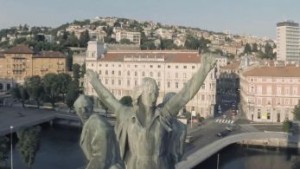 This is a movie about the place I spent my childhood and most of my adult life in. It is sort of a generation spaceship, I am the third generation of my family living in it. Built in 1888. Historical circumstances left a mark on its function and appearance. This film will try to transfer the emotions gathered through reality and dreams experienced at this place. The story follows a dream rhythm (nonlinear) and ends with a small film festival held in the courtyard of the hotel. It is mostly based on surreal dream happenings interspersed with reality checks whilst introducing the building’s history. I find it interesting as a centrepiece of a town which was dissolved by a bigger city during last century. By making this strange and beautiful building a central protagonist I wish to turn the attention to the real life problems I as a tennant have dealing with the neighbors and city council regarding daily functionality. This is the underlying motivation. Hopefully, the budget this movie gets will mostly be used to fix the roof, and maybe even to stop the building from tilting and cracking. Fingers crossed.
This is a movie about the place I spent my childhood and most of my adult life in. It is sort of a generation spaceship, I am the third generation of my family living in it. Built in 1888. Historical circumstances left a mark on its function and appearance. This film will try to transfer the emotions gathered through reality and dreams experienced at this place. The story follows a dream rhythm (nonlinear) and ends with a small film festival held in the courtyard of the hotel. It is mostly based on surreal dream happenings interspersed with reality checks whilst introducing the building’s history. I find it interesting as a centrepiece of a town which was dissolved by a bigger city during last century. By making this strange and beautiful building a central protagonist I wish to turn the attention to the real life problems I as a tennant have dealing with the neighbors and city council regarding daily functionality. This is the underlying motivation. Hopefully, the budget this movie gets will mostly be used to fix the roof, and maybe even to stop the building from tilting and cracking. Fingers crossed.
***
-
KREŠO
Director: Musulin Marina
Producer: Krema Zoran
Production company: OKODOKO, Rijeka
Croatia, Hybrid film, Art, Society
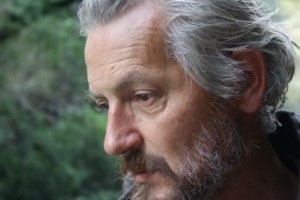 The animated-documentary film Krešo, almost entirely made of photographs, portrays its central point as a journey of Krešo Kovačiček towards forgotten “zone“, overgrown by mills on the Rječina river (Rijeka, Croatia). On that journey, which takes place during changes of four seasons, Krešo introduces us to his personal experience of the world and things that surround him. Action starts in Spring when nature arises. We see Krešo starting his journey from the city center Korzo towards Rječina’s canyon. He depicts anecdotes about his birth. He was born unexpectedly on New Year´s Eve; in retrospect he concludes that he is an April Fools’ child and that his parents got an unexpected joke. He introduces us to the beginnings of his artistic creation and shows us the photography of his first performance that took place 33 years ago in Banja Luka. He points out how this photo was on the cover of the cult ex-yugoslav magazine Polet, and that he is the only citizen of Rijeka besides the members of the band Termiti who can praise with something like that.
The animated-documentary film Krešo, almost entirely made of photographs, portrays its central point as a journey of Krešo Kovačiček towards forgotten “zone“, overgrown by mills on the Rječina river (Rijeka, Croatia). On that journey, which takes place during changes of four seasons, Krešo introduces us to his personal experience of the world and things that surround him. Action starts in Spring when nature arises. We see Krešo starting his journey from the city center Korzo towards Rječina’s canyon. He depicts anecdotes about his birth. He was born unexpectedly on New Year´s Eve; in retrospect he concludes that he is an April Fools’ child and that his parents got an unexpected joke. He introduces us to the beginnings of his artistic creation and shows us the photography of his first performance that took place 33 years ago in Banja Luka. He points out how this photo was on the cover of the cult ex-yugoslav magazine Polet, and that he is the only citizen of Rijeka besides the members of the band Termiti who can praise with something like that.
***
-
THE LAND
Director: Sipka Marko
Producer: Galic Zoran
Production company: VizArt Production
Bosnia and Herzegovina, 95 min, Anthropology
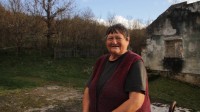 ‘The Land’ is a film about the last inhabitants of a small, mountain village in BH who all came back after the war to repair their destroyed houses and continue with the life as it once was.But now, schools are closed, young people left, and large portions of land lie deserted. Agriculture is their only source of income. Connection with the nature is their lifestyle and the way to survive.We observe the whole process of cultivating the land and growing animals for food. We are watching their simple daily life. We listen about their dreams, fears and memories.All around the place we can see destroyed houses, and abandoned land, slowly taken by bushes, wild plants and trees. This land is a witness of the past and a prophecy of the future.
‘The Land’ is a film about the last inhabitants of a small, mountain village in BH who all came back after the war to repair their destroyed houses and continue with the life as it once was.But now, schools are closed, young people left, and large portions of land lie deserted. Agriculture is their only source of income. Connection with the nature is their lifestyle and the way to survive.We observe the whole process of cultivating the land and growing animals for food. We are watching their simple daily life. We listen about their dreams, fears and memories.All around the place we can see destroyed houses, and abandoned land, slowly taken by bushes, wild plants and trees. This land is a witness of the past and a prophecy of the future.
***
-
OPEN AIR
Director: Soboleva Tatyana
Producer: Landry Hugues
Production company: Inthemood…
France, 52 min, HD, Creative
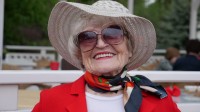 I live in a city that no longer exists. I was born in it and grew up in it, but now it’s gone. Moscow has ceased to be a city – there are no more yards with elders taking a stroll, no one going on promenades – they have all moved to the outskirts of the metropolis. It’s now a place of business where nobody knows each other. It’s like a person with amnesia, only in this case it’s the city that has amnesia, and all the people that live in it.One of the islands preserved of the old city is an old open air dance floor in a park that I pass every day. In the Soviet times, it was full of life – there were discos every night; and dances for pensioners organized on the weekends. The discos have since moved to clubs and the retro-dances are now attended by those who have nowhere else to go. This is a place with people that seem inexistent, just like the city that is no more.They come to dance in the snow and in the rain, and in the stifling July heat. These awkwardly dressed old people with their strange moves. Passers-by laugh at them. Youngsters are filming them on their phones to share a ‘funny video’ online. But the pensioners pay no attention to this and continue to dance – they simply have no choice. This is their life, their passion, their arguments, their meetings and partings. It’s their world.
I live in a city that no longer exists. I was born in it and grew up in it, but now it’s gone. Moscow has ceased to be a city – there are no more yards with elders taking a stroll, no one going on promenades – they have all moved to the outskirts of the metropolis. It’s now a place of business where nobody knows each other. It’s like a person with amnesia, only in this case it’s the city that has amnesia, and all the people that live in it.One of the islands preserved of the old city is an old open air dance floor in a park that I pass every day. In the Soviet times, it was full of life – there were discos every night; and dances for pensioners organized on the weekends. The discos have since moved to clubs and the retro-dances are now attended by those who have nowhere else to go. This is a place with people that seem inexistent, just like the city that is no more.They come to dance in the snow and in the rain, and in the stifling July heat. These awkwardly dressed old people with their strange moves. Passers-by laugh at them. Youngsters are filming them on their phones to share a ‘funny video’ online. But the pensioners pay no attention to this and continue to dance – they simply have no choice. This is their life, their passion, their arguments, their meetings and partings. It’s their world.
***
-
OVER THE LIMIT
Director: Prus Marta
Producer: Kubicki Maciej
Production company: Telemark Sp. z o.o., Ventana-Film GmbH
Poland, 90 min, Portrait
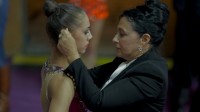 An intimate portrait of the world’s most outstanding rhythmic gymnast Margarita Mamun, a main representative of prestigious Russian club Gazprom. The film presents a groundbreaking year in her life, from the 2015 World Championships to the 2016 Olympic Games. The gymnast has the chance of a lifetime to become an Olympic champion, competing with the best friend from her club, Yana Kudryavtseva. The story about Margarita Mamun acts as a parable of the training system created by Irina Viner, the club’s president. Over the Limit is the first documentary that shows what goes on behind the closed door to the world of the Russian phenomenon of rhythmic gymnastics. It’s a film about dreams, development, and solitude of a distinguished individual.
An intimate portrait of the world’s most outstanding rhythmic gymnast Margarita Mamun, a main representative of prestigious Russian club Gazprom. The film presents a groundbreaking year in her life, from the 2015 World Championships to the 2016 Olympic Games. The gymnast has the chance of a lifetime to become an Olympic champion, competing with the best friend from her club, Yana Kudryavtseva. The story about Margarita Mamun acts as a parable of the training system created by Irina Viner, the club’s president. Over the Limit is the first documentary that shows what goes on behind the closed door to the world of the Russian phenomenon of rhythmic gymnastics. It’s a film about dreams, development, and solitude of a distinguished individual.
***
-
PAYING A VISIT TO FORTUNA
Director: Kálmán Mátyás
Producer: Horvath-Szabo Agnes
Production company: COLLOC Productions
Fortuna vendégei, Hungary, 85 min, DCP, Society
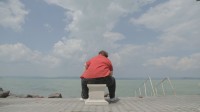 Who has not wondered what would happen if they won the lottery? The personal story of the lucky couple, Anikó and László, who won the jackpot stretches further than their relationship. Folktales have always dealt with the topic of luck: of rich becoming poor or the other way around. The story of the couple’s delight and unexpected difficulties are shown here as a contemporary fable.Anikó and László spent decades in extreme poverty until one day, in autumn 2013, László won the lottery. Since then, they have moved from the slums, bought real estate and invested in stocks. Anikó seems to have recovered from the panic disorder that kept her in the prison of her home for twenty-five years. Before, the couple’s main wish was to take a trip to the sea for the first time in their lives.But Anikó’s and László’s reactions strongly diverge in their new circumstances. Though the money is safe, in other respects the couple let go of the wheel without being mindful. With two million euros in their pocket they are further from happiness than before the miracle.The primarily concern of the film is happiness. Is money enough? How does getting money affect the relationships we already have? Looking behind the tabloid headlines, the couple’s everyday life, unexpectedly, is just as hard as it had been before. Only the nature of the challenges have changed and the level of frustration is the same.
Who has not wondered what would happen if they won the lottery? The personal story of the lucky couple, Anikó and László, who won the jackpot stretches further than their relationship. Folktales have always dealt with the topic of luck: of rich becoming poor or the other way around. The story of the couple’s delight and unexpected difficulties are shown here as a contemporary fable.Anikó and László spent decades in extreme poverty until one day, in autumn 2013, László won the lottery. Since then, they have moved from the slums, bought real estate and invested in stocks. Anikó seems to have recovered from the panic disorder that kept her in the prison of her home for twenty-five years. Before, the couple’s main wish was to take a trip to the sea for the first time in their lives.But Anikó’s and László’s reactions strongly diverge in their new circumstances. Though the money is safe, in other respects the couple let go of the wheel without being mindful. With two million euros in their pocket they are further from happiness than before the miracle.The primarily concern of the film is happiness. Is money enough? How does getting money affect the relationships we already have? Looking behind the tabloid headlines, the couple’s everyday life, unexpectedly, is just as hard as it had been before. Only the nature of the challenges have changed and the level of frustration is the same.
***
-
PETRILA PLANET
Director: Dascalescu Andrei
Producer: Dascalescu Andrei
Production company: Filmlab
Planeta Petrila, Romania, 90 min, Creative
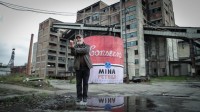 Change is always coming. But what happens when you dread change and have absolutely no knowledge of how to handle it?This is the case of people living in Petrila, a small mining town in the South-West of Romania. The mine is the center of the world for everyone. It will be shut down and demolished by 2016. Petrila is living its last days.Nothing ever happens in Petrila. Half of the apartments in the communist-built blocks are empty; some look like they’ve survived a war. The few miners still employed work down to 1000 m under surface, while excavators, bulldozers and scrap iron thieves take down the surface buildings, one by one. It is this post apocalyptic setup that hosts our main character. His name is Ion Barbu, he has worked in the mine for 15 years, has lived in Petrila his entire life and today he is a renowned sketch artist. He is regarded as eccentric by his fellow citizens, as a pain in the arse by the authorities and as an extremely charming and talented man by a group of local, devoted women who always volunteer for his “projects”. In the dying town, Barbu is the only one to take action. And he does it his own way! From forming a “poetical colony” to turning the mine’s water pumps building into a giant Campbell Soup Can, through “happenings” and protests such as a fashion show styled by his team with clothes from the town’s second hand shop (called Imagination’s Dream) or a week long (literally) underground theater festival…
Change is always coming. But what happens when you dread change and have absolutely no knowledge of how to handle it?This is the case of people living in Petrila, a small mining town in the South-West of Romania. The mine is the center of the world for everyone. It will be shut down and demolished by 2016. Petrila is living its last days.Nothing ever happens in Petrila. Half of the apartments in the communist-built blocks are empty; some look like they’ve survived a war. The few miners still employed work down to 1000 m under surface, while excavators, bulldozers and scrap iron thieves take down the surface buildings, one by one. It is this post apocalyptic setup that hosts our main character. His name is Ion Barbu, he has worked in the mine for 15 years, has lived in Petrila his entire life and today he is a renowned sketch artist. He is regarded as eccentric by his fellow citizens, as a pain in the arse by the authorities and as an extremely charming and talented man by a group of local, devoted women who always volunteer for his “projects”. In the dying town, Barbu is the only one to take action. And he does it his own way! From forming a “poetical colony” to turning the mine’s water pumps building into a giant Campbell Soup Can, through “happenings” and protests such as a fashion show styled by his team with clothes from the town’s second hand shop (called Imagination’s Dream) or a week long (literally) underground theater festival…
***
-
REACH THE SKY
Director: Kondrla Michal
Producer: Hlavačka Michal
Production company: Protos Productions, s.r.o.
Nebojte sa vzlietnuť , Slovak Republic, 80 min, DCP, Creative, Portrait, Science and Technology
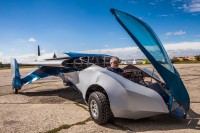 Documentary’s protagonist is the designer, pilot, teacher, visionary and constructor of a flying automobile, Štefan Klein. His enthusiastic passion for flying was something that he developed at an early age after his father and grandfather introduced him to flying. Štefan, along with his brother, Vlado, and his father, Paľo, became a trio of visionaries who not only loved to fly but also single-handedly constructed and test piloted various flying machines. The time of the Velvet Revolution in 1989 is an important milestone in our story. Štefan was studying design at the Academy of Fine Arts and Design in Bratislava and the political atmosphere and the opening up of Czechoslovakia’s borders inspired him to create a machine which would epitomize the swift and free movement that he so adored. The Velvet Revolution changed the way society was allowed to think and for Štefan this meant that he could finally create what had only been hiding among his thoughts for so long. Twenty-five years later, a flying automobile by the name of Aeromobil becomes a reflection of the development of Slovak society.The first prototype, named Aeromobil 1 was test piloted by Štefan himself, at the Nitra Airport in 1993. It was unable to take off and it was not a success. Aeromobil 1 ended up as a curiosity among the exhibits at the Bratislava Museum of Transportation with no sign bearing the name of its creator.
Documentary’s protagonist is the designer, pilot, teacher, visionary and constructor of a flying automobile, Štefan Klein. His enthusiastic passion for flying was something that he developed at an early age after his father and grandfather introduced him to flying. Štefan, along with his brother, Vlado, and his father, Paľo, became a trio of visionaries who not only loved to fly but also single-handedly constructed and test piloted various flying machines. The time of the Velvet Revolution in 1989 is an important milestone in our story. Štefan was studying design at the Academy of Fine Arts and Design in Bratislava and the political atmosphere and the opening up of Czechoslovakia’s borders inspired him to create a machine which would epitomize the swift and free movement that he so adored. The Velvet Revolution changed the way society was allowed to think and for Štefan this meant that he could finally create what had only been hiding among his thoughts for so long. Twenty-five years later, a flying automobile by the name of Aeromobil becomes a reflection of the development of Slovak society.The first prototype, named Aeromobil 1 was test piloted by Štefan himself, at the Nitra Airport in 1993. It was unable to take off and it was not a success. Aeromobil 1 ended up as a curiosity among the exhibits at the Bratislava Museum of Transportation with no sign bearing the name of its creator.
***
-
RIVER TALES
Director: Dashinova Veselina, Helmcke Aline
Producer: Leeb Tina, Mileva Mina
Production company: Activist 38 Ltd., Celluloid Fabrik
Bulgaria, Germany, 90 min, DCP, Animated, History, Personal View, Society
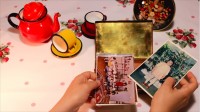 Travelling through Bulgaria and Germany, two artist friends set to find out in what way 25 years after the fall of the Iron Curtain Eastern and Western Europeans are still different.“River Tales” is an experimental documentary essay that combines documentary scenes and animation. It is based on a dialogue between the two directors and main protagonists VESELINA from Sofia, Bulgaria and ALINE from Berlin, Germany. The protagonists are linked by their passion for animation. They use it as a matter of expression in order to grasp the world around them. In 2008, Veselina and Aline meet at the Royal College of Art in London. Soon, they discover each other’s early childhood fascination for “the other side”. As a child in 1980’s West Berlin, Aline dreams about a life on the other side of the wall where people count more than money and goods. Meanwhile in communist Bulgaria, Veselina is captivated by stories of a much-mythologized West and keeps each item she can get hold of from there in a treasure box. Through sharing each other’s stories, the two soon realise that their fascination for the ‘other’ lacks a sense for realism and is based on assumptions. This is why they decide to take on a journey through Bulgaria and Germany in order to give each other a deeper insight into their lives and family stories. As they travel together, they discover that today the influence of the Iron Curtain is still present on a personal and social level.
Travelling through Bulgaria and Germany, two artist friends set to find out in what way 25 years after the fall of the Iron Curtain Eastern and Western Europeans are still different.“River Tales” is an experimental documentary essay that combines documentary scenes and animation. It is based on a dialogue between the two directors and main protagonists VESELINA from Sofia, Bulgaria and ALINE from Berlin, Germany. The protagonists are linked by their passion for animation. They use it as a matter of expression in order to grasp the world around them. In 2008, Veselina and Aline meet at the Royal College of Art in London. Soon, they discover each other’s early childhood fascination for “the other side”. As a child in 1980’s West Berlin, Aline dreams about a life on the other side of the wall where people count more than money and goods. Meanwhile in communist Bulgaria, Veselina is captivated by stories of a much-mythologized West and keeps each item she can get hold of from there in a treasure box. Through sharing each other’s stories, the two soon realise that their fascination for the ‘other’ lacks a sense for realism and is based on assumptions. This is why they decide to take on a journey through Bulgaria and Germany in order to give each other a deeper insight into their lives and family stories. As they travel together, they discover that today the influence of the Iron Curtain is still present on a personal and social level.
***
-
THE STORKS
Director: Jelinčić Tomislav
Producer: Pek Danijel
Production company: Antitalent Produkcija
Rode, Croatia, 52 min, DCP, HD, Society
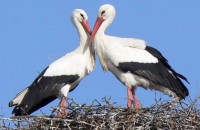 23 years ago Stjepan found a stork with a gun wound and a broken wing. He saved her life but she cannot fly. Stjepan raised her in backyard of the school he was working in as housekeeper. He named her Malena. 10 years later, Klepetan shows up. Male stork arrived from his winter home in South Africa. Klepetan and Malena fell in love and spent the summer together. In august he flew back to South Afrika, but next spring he returned. And with first days of spring he is coming back for 13 years now. Each year they have a new family. And when the time comes he takes the children to South Afrika. 7 months when he is on his way, Stjepan takes care of Malena. He is widowed and the two storks are his best friends. Stjepan is, when Klepetan is not there, her best friend. And she is his. They talk, watch TV shows together and make the gloomy and cold winter pass faster. With Klepetan’s return the ordinary family life continues. Every year it is the same exciting cycle; shy courtship at first, passionate love, arrival of the offsprings, everyday care for the family, growing up and preparation for the first flight. Until finally another goodbye is inevitable. The circle of life turns in only 6 months, every year all over again. This is why this story is so intriguing. 13 families raised in 13 years. Love and relations that take one whole lifetime for human beings is as easy and natural for these two lovers. How do they do it? What is it that connects them and makes their story of loyalty…
23 years ago Stjepan found a stork with a gun wound and a broken wing. He saved her life but she cannot fly. Stjepan raised her in backyard of the school he was working in as housekeeper. He named her Malena. 10 years later, Klepetan shows up. Male stork arrived from his winter home in South Africa. Klepetan and Malena fell in love and spent the summer together. In august he flew back to South Afrika, but next spring he returned. And with first days of spring he is coming back for 13 years now. Each year they have a new family. And when the time comes he takes the children to South Afrika. 7 months when he is on his way, Stjepan takes care of Malena. He is widowed and the two storks are his best friends. Stjepan is, when Klepetan is not there, her best friend. And she is his. They talk, watch TV shows together and make the gloomy and cold winter pass faster. With Klepetan’s return the ordinary family life continues. Every year it is the same exciting cycle; shy courtship at first, passionate love, arrival of the offsprings, everyday care for the family, growing up and preparation for the first flight. Until finally another goodbye is inevitable. The circle of life turns in only 6 months, every year all over again. This is why this story is so intriguing. 13 families raised in 13 years. Love and relations that take one whole lifetime for human beings is as easy and natural for these two lovers. How do they do it? What is it that connects them and makes their story of loyalty…
***
-
UNDER THE COVER
Directors: Latić Hulusić Nejra & Begović – Ćorić Sabrina
Production company: HAVA Sarajevo
BIH, Personal View, Philosophy, Politics, REFINERI
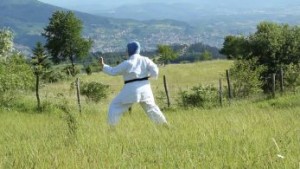 There is a piece of clothing that became scandalous after September 11th 2001. A head scarf. In 2011. a big debate whether Muslim women should be allowed to wear head scarves in public places was raised. Nowdays, in 2015. with growth of terroristic groups like ISIS, hiding behind religion and threatening free world, headscarfs are more and more perceived as a threatening flags of so called “Islamic” terrorists. Meanwhile, in Bosnia&Herzegovina, a post-war and post-communistic society, a new punk movement was born. Young generation Muslim women started wearing hijabs as free expression of their faith and rebellion against capitalistic vision of liberated woman. Now, Bosnia is facing a transition towards EU. UNDER THE COVER is a film driven by a personal story of two film directors from Sarajevo, Nejra and Sabrina. Though both Muslims, Nejra wears hijab but Sabrina does not.
There is a piece of clothing that became scandalous after September 11th 2001. A head scarf. In 2011. a big debate whether Muslim women should be allowed to wear head scarves in public places was raised. Nowdays, in 2015. with growth of terroristic groups like ISIS, hiding behind religion and threatening free world, headscarfs are more and more perceived as a threatening flags of so called “Islamic” terrorists. Meanwhile, in Bosnia&Herzegovina, a post-war and post-communistic society, a new punk movement was born. Young generation Muslim women started wearing hijabs as free expression of their faith and rebellion against capitalistic vision of liberated woman. Now, Bosnia is facing a transition towards EU. UNDER THE COVER is a film driven by a personal story of two film directors from Sarajevo, Nejra and Sabrina. Though both Muslims, Nejra wears hijab but Sabrina does not.

